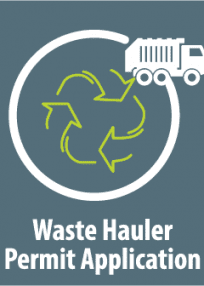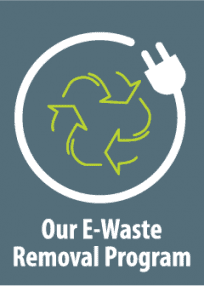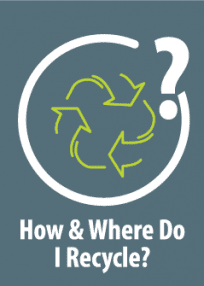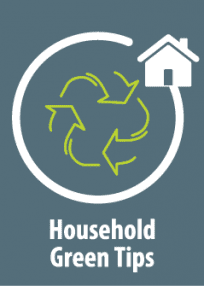Household Green Tips
Practice the 3 R’s (Reduce, Reuse, Recycle)
Send less trash to our landfill while saving energy and preserving natural resources.
- Buy rechargeable batteries. They can be used for longer periods and will likely be less expensive than disposable batteries in the long run. When using rechargeable batteries, be sure to follow the instructions for proper disposal.
- Check your thermostats
.
Turning down your thermostat one degree in the winter, and up a degree in the summer could save you 3% in home energy costs. The standard temperature for many water heaters is 140 degrees Fahrenheit. If you drop the temperature down to 120 degrees Fahrenheit, energy experts claim that you could potentially save hundreds of dollars in a lower energy consumption. - Change your light bulbs.
Switch out your conventional bulbs for an LED lamp. - Save water.
Take shorter showers, repair leaky faucets and turn off the water while you brush your teeth or while shaving. - Wash your laundry in cold water.
Another way is to set on your washing machine to cold. Newer detergents are effective in cold water. Most loads don’t need hot water, and 90% of the energy used by washing machines goes into heating. - Drink tap water.
Choosing a reusable bottle and drinking from your tap will save you money and save the environment from plastic water bottles. - Check the labels
.
When buying products, check the labels to determine an item’s recyclability and whether it is made from recycled materials. Buying recycled encourages manufacturers to make more recycled-content products available - Food Waste
Reduce food waste by using up the food you already bought and have in the house instead of buying more. - Go paperless.
Save natural resources – as well as late fees – by enrolling in online bill-paying options. Plus, you’ll save money on stamps.
The key to generating less waste is to reduce the amount we buy or consume and reuse the products we purchase. Making the choice to consume less provides more social and environmental benefits than recycling and composting alone. Your small daily choices and habits add up!
- Bring your reusable shopping bag to the grocery store and beyond.
- Pack lunches in a reusable bag with reusable food and drink containers
- Ask to be removed from junk mail lists.
- Buy in bulk and avoid single-serving containers when possible
- Recycle your food and yard waste through composting—nature’s way of recycling.
- Shop at one of the many thrift or consignment stores throughout Sebastian County. You can find unique, affordable, and one-of-a-kind items that will showcase your own personal style!
- Use durable coffee/travel mugs instead of Styrofoam
- Use cloth napkins or towels
- Use refillable water bottles
- Use rechargeable batteries
- Reuse boxes
- Participate in a paint collection and reuse program
- Select sturdy and washable utensils and tableware at home, picnics, and parties
- Donate items to charitable organizations like Goodwill, Salvation Army or Habitat for Humanity
- Conserves resources for our future
- Supplies valuable raw materials to industry.
- Creates jobs.
- Reduces the need for new landfills.
Don’t throw away anything that can be recycled! Click on our website, How Do I Recycle to learn what items can be recycled and where in Sebastian County.






